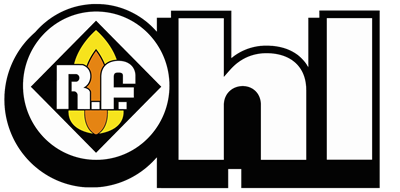New AC Units: Saving You Money By Cutting Costs
Americans spend billions of dollars each year on heating and cooling. Many factors can influence energy consumption in a home. Some of the factors include choosing the right–sized HVAC system, lifestyle, and efficiency ratings. When properly chosen, high efficiency heating and cooling systems improve comfort and safety at significantly reduced operating costs by using less energy resources. Essentially, purchasing a high–efficiency HVAC system is an investment in safety and home comfort.
and cooling. Many factors can influence energy consumption in a home. Some of the factors include choosing the right–sized HVAC system, lifestyle, and efficiency ratings. When properly chosen, high efficiency heating and cooling systems improve comfort and safety at significantly reduced operating costs by using less energy resources. Essentially, purchasing a high–efficiency HVAC system is an investment in safety and home comfort.
Homeowners love air conditioning during the hot summer months, except, of course, when they see their utility bill. The older air conditioning systems were extreme energy hogs, and homeowners paid a steep price for the comfort they received. Fortunately, by using modern technologically advanced systems, homeowners can enjoy substantial energy savings.
What Is The Difference Between Old A/C Units And New Ones?
To qualify for Energy Star rating, HVAC systems must meet or exceed the minimum efficiency ratings required by the EPA. Heat pumps and air conditioning units should have a SEER rating of 14.5 or higher, HSPF of 8.2 or higher, or EER of 12 or above. Gas furnaces should have an AFUE of 90% or higher. The general rule when it comes to efficiency rating is that the higher the rating, the higher the energy savings.
Another factor that influences heating and cooling energy costs is proper load calculation. Most homes have heating and cooling systems that are too big or too small for them. Improper load calculation can lead to a wide range of problems. For example, units may not run long enough to manage humidity, temperatures might be uneven, units may break down frequently, and energy costs might soar. Homeowners who install units that are too big end up paying to cool or heat space that is not there. Homeowners, therefore, should hire qualified HVAC technicians to conduct a load calculation before purchasing a new system.
How Does A New Air Conditioning Unit Save Me Money?
An energy–wise purchase can save homeowners money for years. In fact, modern high–efficiency air conditioners can cut household energy costs by up to 30%. In addition, such systems are good for the environment because they release fewer pollutants. Household energy accounts for 20% of all U.S. emissions of CO2, 15% of nitrogen oxides, and 26% of sulfur dioxide. By reducing household energy consumption, using high–efficiency heating and cooling systems, homeowners can save energy and reduce pollution at the same time.
In addition to installing energy efficient HVAC systems, homeowners should hire qualified heating and cooling technicians to perform seasonal preventative maintenance to improve energy efficiency, increase the working life of the system, save money, and reduce pollution.
Fortunately, R.F. Ohl specializes in the installation of AC systems and we have the most energy efficient brands available for you at a discount price. We guarantee our work and maintain Keep cool this summer by calling us and speaking with a live representative 24/7.
